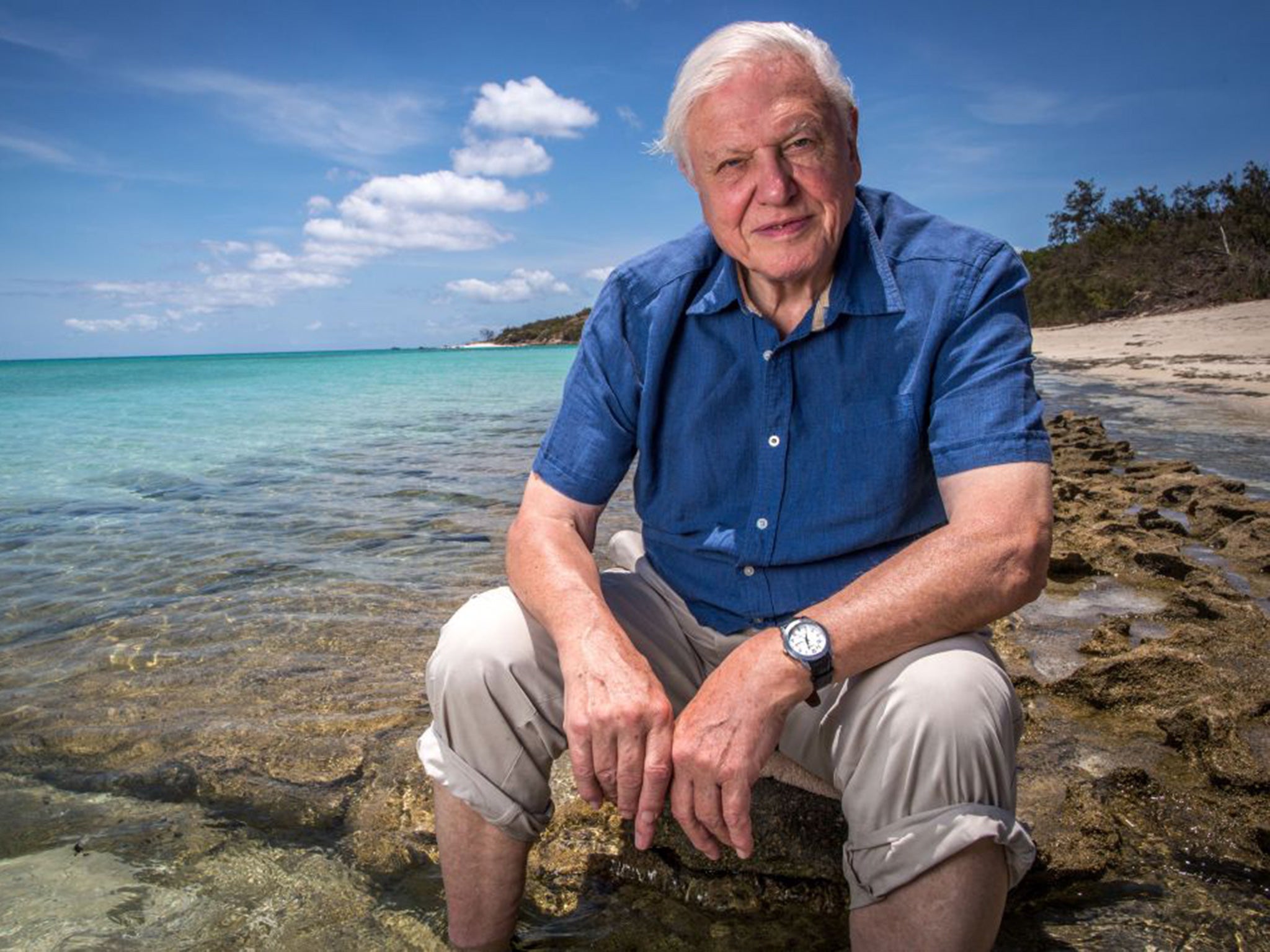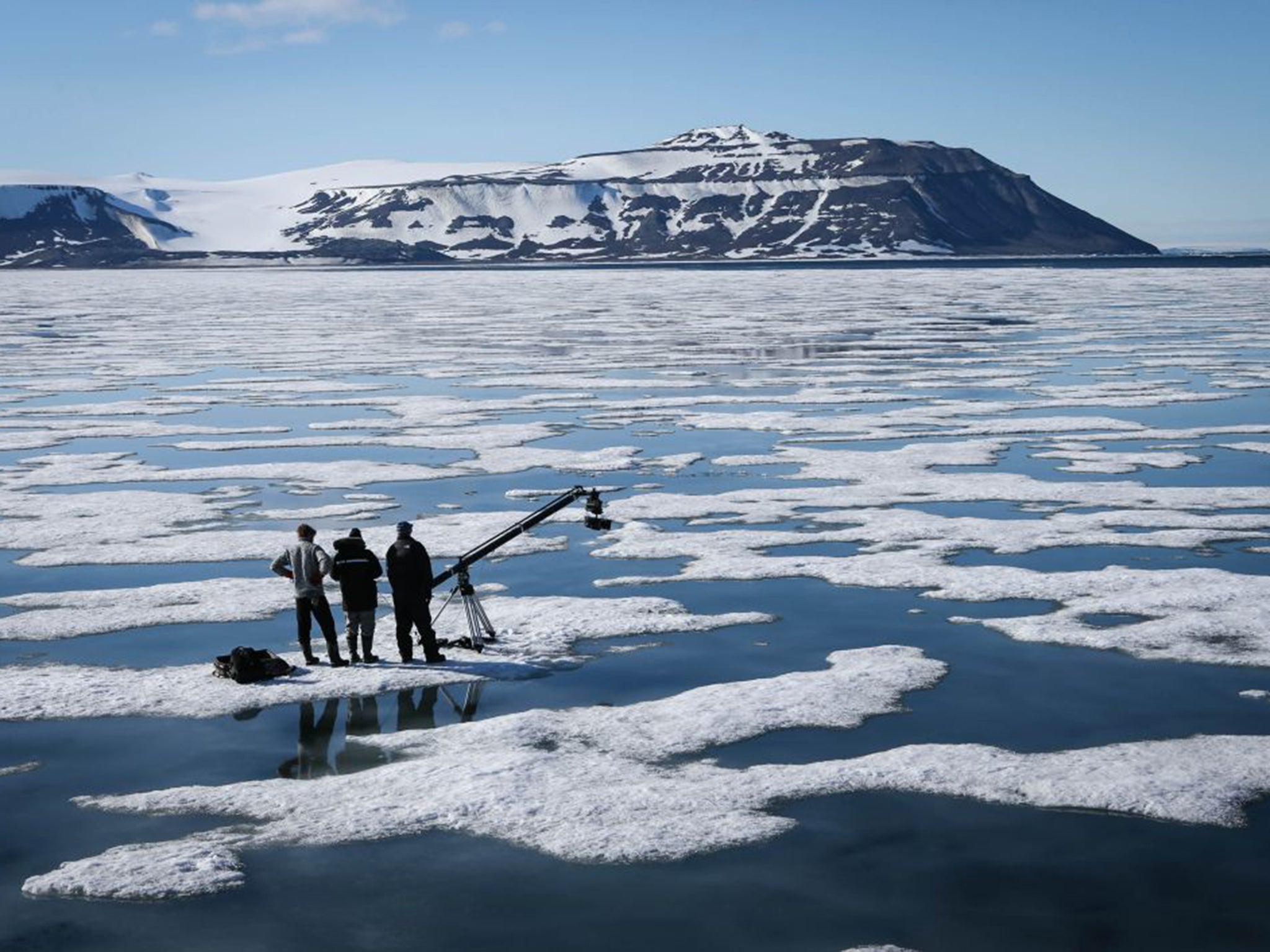David Attenborough: 'Much like the Barrier Reef, the BBC is in great danger'
'The BBC is an extraordinary organisation and it's got enough problems trying to keep up with changing social demands let alone what the politicians want to do with it'

Your support helps us to tell the story
From reproductive rights to climate change to Big Tech, The Independent is on the ground when the story is developing. Whether it's investigating the financials of Elon Musk's pro-Trump PAC or producing our latest documentary, 'The A Word', which shines a light on the American women fighting for reproductive rights, we know how important it is to parse out the facts from the messaging.
At such a critical moment in US history, we need reporters on the ground. Your donation allows us to keep sending journalists to speak to both sides of the story.
The Independent is trusted by Americans across the entire political spectrum. And unlike many other quality news outlets, we choose not to lock Americans out of our reporting and analysis with paywalls. We believe quality journalism should be available to everyone, paid for by those who can afford it.
Your support makes all the difference.Sir David Attenborough has warned that the BBC is in “real danger” and in future may not be able to fund ambitious natural history series like his latest investigation into the effects of climate change on the Great Barrier Reef.
Nearly sixty years after his first scuba dive, Sir David, 89, revisits an ecosystem he describes as “like no other in the natural world”.
Embarking upon a 1,000ft dive in a Triton submersible, he examines flora and fauna never before viewed and discusses with scientists the threat to the Reef off the Queenland Coast, which has lost almost half its coral since his first visit in 1957.
The three films will be broadcast by BBC1 over Christmas. But the BBC’s international reputation for ground-breaking natural history series is threatened by budget cuts and digital rivals with deep pockets such as Netflix, which has lured the production team behind Planet Earth and Frozen Planet, for a rival series, called Our Planet.
Sir David said: “The BBC is in real danger. And if you lose the BBC, I certainly will have lost a very, very important element of my life. And I would like to think that quite a lot of people in Britain think the same thing. I certainly do.
“The BBC is an extraordinary organisation and it's got enough problems trying to keep up with changing social demands let alone what the politicians want to do with it, so I am very concerned about the future of the BBC.”
“All those (the rise of online rivals) are very real problems. But the fact of the matter is programmes like the Barrier Reef and The Hunt are produced with international financial support and make money. And they only do that by being the best.”
Although governments had the right to propose reforms to the BBC, the corporation’s independence must be maintained, Sir David believes. “One of the things government should do is keep BBC at arm’s length, or keep themselves at arm’s length, because the power of the BBC is that it is at arm's length from the government but it’s not above the law.”

This week, Sir David spoke at the UN Climate Change conference in Paris, which seeks to avert dangerous levels of global warming by curbing climate-altering greenhouse gas emissions. He said that the Barrier Reef films, which he screened in Paris with a leading Queensland scientist, were part of a personal “lobbying” effort to save the reef and convince governments to take decisive action.
Reef-building corals are highly vulnerable to rising sea temperatures and ocean acidification. The loss of hard corals will reduce essential habitat for many other reef creatures.
“The reef may not survive the steady erosion, the effect of global warming,” Sir David said. “If the temperature rises up by two degrees and the acidity by a measurable amount, lots of species of coral will die out. Quite what happens then is anybody's guess. But it won’t be good.”
Sir David, who celebrates his 90th birthday next Spring with two new BBC programmes, dismissed any suggestion that he should retire. “And I’d sit in the corner dribbling? Bit of knitting maybe? It’s no problem to go and see these fantastic things. All it is, is a huge privilege.”
He would consider voluntarily paying the £145.50 cost of his BBC licence to help ease the £750m burden of paying for all licences for over-75s which the corporation must now shoulder. “If you’re asking me have I said ‘here's £150’, the answer is no I haven’t done. Maybe I should.”
But Sir David is not interested in crowning his career with a journey into space. “No, I wouldn't do that for anything. I mean that’s a five year job, you know. Bloody hell. Crikey. You’re up there for six months before you see anything. A submarine is much better fun I can tell you.”
The BBC said the Barrier Reef programmes did not breach impartiality rules, preventing programmes from embracing campaign agendas. A spokesman said: “The series is an exploration of the wonders of the Great Barrier Reef and the efforts being made to preserve it for future generations. As well as exploring the reef’s extraordinary diverse life, its new and surprising science and the very personal connection David has to it, the series explores the impact environmental factors have on the reef.
“The series does not campaign for the protection of the reef but delivers impartial, verified information on the changes the reef has experienced. David Attenborough is a passionate, world- renowned naturalist with his own personal views on many subjects, which he is allowed to express.”
Join our commenting forum
Join thought-provoking conversations, follow other Independent readers and see their replies
Comments